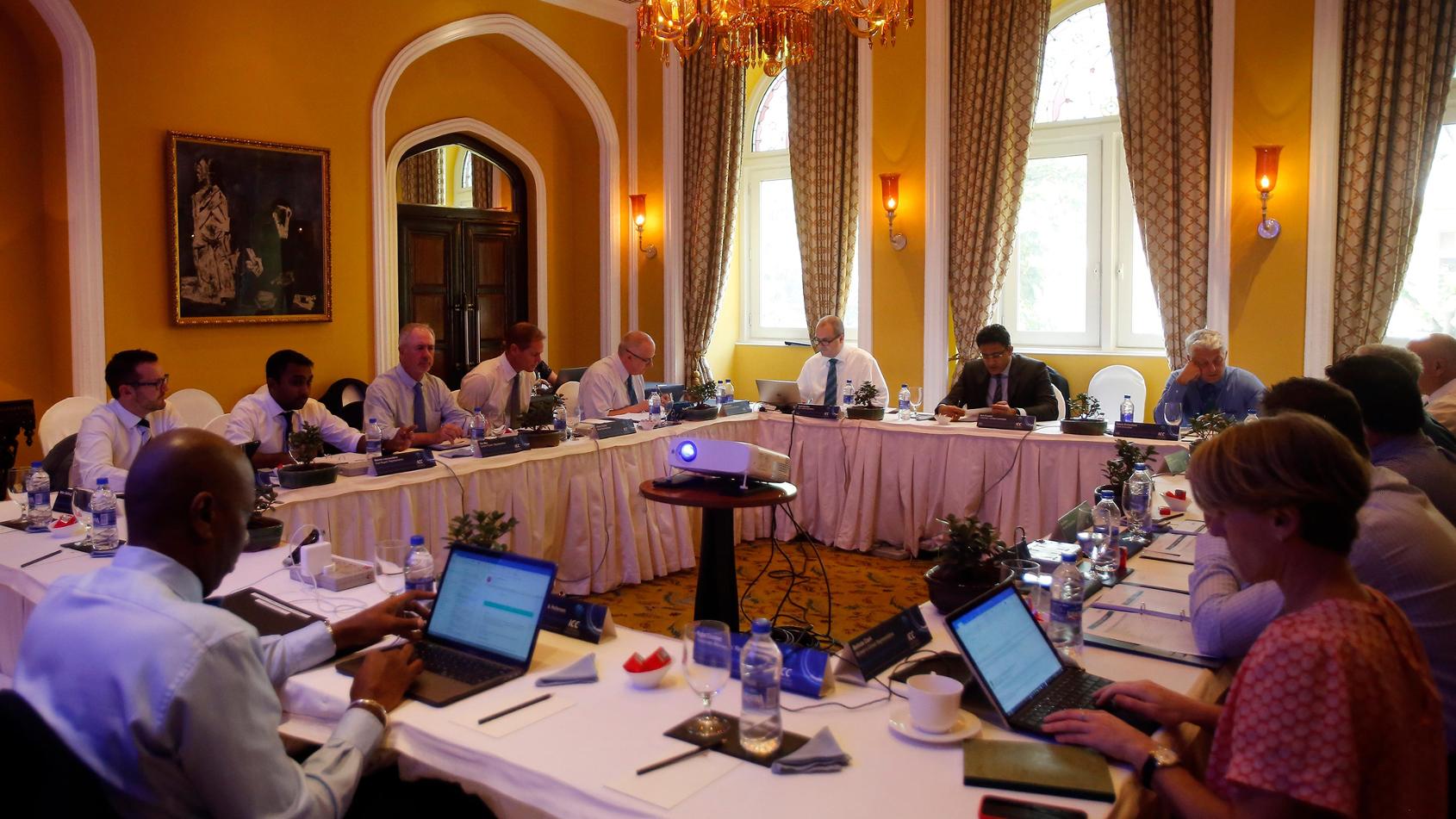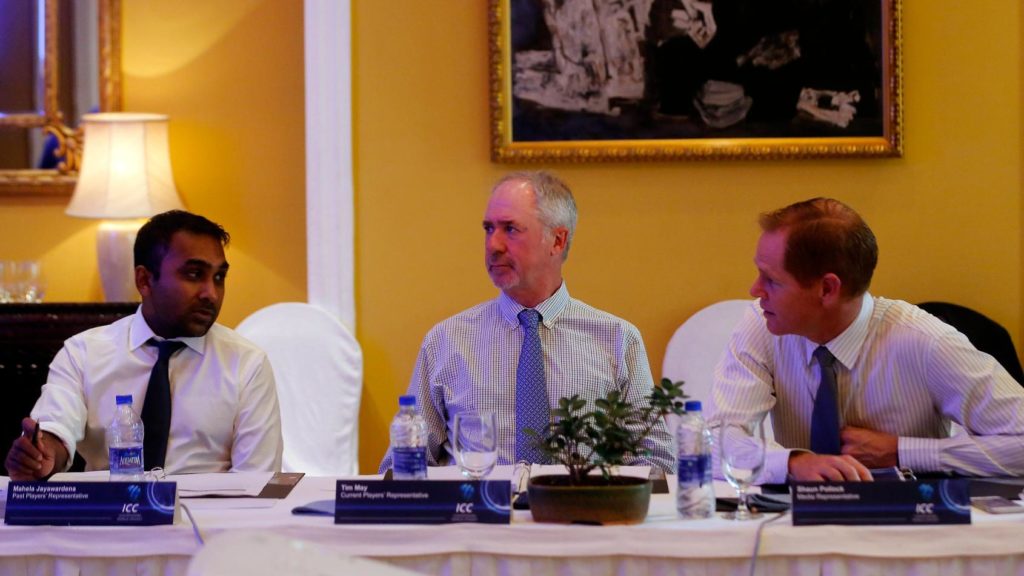The ICC cricket committee strongly supports improved player behaviour and culture of respect.
The committee has made several recommendations to create a culture of respect that everyone in the game can adhere to.
The committee concluded its two-day meeting in Mumbai on Tuesday with strong support for the ICC board’s commitment to improving player behaviour and the development of a culture of respect.
The committee has also made recommendations around the toss in Test cricket and ICC World Test Championship playing conditions.
On day one of the meeting, the committee was joined by former England captain and ex-MCC president, Mike Gatting, and David Boon, former Australia batsman and now a member of the Emirates Elite Panel of ICC Match Referees, to discuss the importance of the spirit of cricket to the game generally and, more specifically, the code of conduct.
There were three main areas of discussion. Firstly, what can member boards do to create a better atmosphere of respect between teams and to provide for a fair contest on the field of play? Secondly, what does it mean to play in the spirit of cricket? And thirdly, the specific offences to be covered by the code, the associated level of sanctions and the process for the consistent reporting, hearing and adjudication of charges brought under the code.
The cricket committee has made a series of recommendations to be shared with the chief executives’ committee in June as part of the collective desire to create a culture of respect and protect the spirit of the game.
These include adopting the following principles:
- Giving greater authority and support to match officials
- Greater leadership accountability for boards and team support staff
- Clear expectations for the treatment of visiting teams particularly around practice facilities, warm-up matches and logistical arrangements
- Greater education for all young players on the history and spirit of the game
The committee has also recommended the following in relation to specific code of conduct offences:
- Raising the sanctions associated with ball tampering
- Creating a new offence for offensive, personal, insulting, offensive or orchestrated abuse
- The consideration of the introduction of a new offence of attempting to gain an unfair advantage
- Creating a code of respect
- Match referee to have the authority to downgrade or upgrade a level of offence or sanction

ICC cricket committee chairman Anil Kumble said: ‘We had an excellent discussion around the issue of player behaviour and I’d like to thank Mike Gatting and David Boon for joining us and making valuable contributions.
‘The committee echoed the sentiments of the ICC chief executives’ committee and the ICC board, and, as such, we have made a series of recommendations as part of the creation of a culture of respect we can all adhere to.
‘The group felt that excessive personal abuse and ball tampering were serious offences in the game and that should be reflected in the way in which they are dealt with. There was also strong support for giving the match officials more authority and subsequently greater support around their decision making.’
Other key recommendations from the cricket committee were around the playing conditions of the ICC World Test Championship.
The committee discussed whether the toss should be automatically awarded to the visiting team but felt that it was an integral part of Test cricket which forms part of the narrative of the game.
However, in acknowledging that the preparation of Test pitches that could provide a risk to the competitiveness of the ICC World Test Championship, the committee urged members to continue to focus on the delivery of pitches that provide a better balance between bat and ball in line with ICC regulations.
The committee also recommended a points system for the consideration of the ICC chief executives’ committee. Based on the principle of simplicity and every match needing to count, the committee recommended that points should only be awarded for each match and not a series win.
As part of this, it was proposed that there was a draw-win ratio of 0.33:1, so a draw gives each team a third of the available points.
It was also agreed to propose a reserve day for the ICC World Test Championship final to enable any time lost through bad weather to be made up.
The ICC cricket committee
- Chairman – Anil Kumble (former India captain)
- Ex-officio – Shashank Manohar (ICC chairman) and David Richardson (ICC chief executive)
- Past player representatives – Andrew Strauss (former England captain) and Mahela Jayawardena (former Sri Lanka captain)
- Current player representatives – Rahul Dravid (former India captain) and Tim May (former Australia off-spinner and ex-CEO of Fica)
- Full Member team coach representative – Mike Hesson (New Zealand team coach)
- Associate members representative – Kyle Coetzer (Scotland captain)
- Women’s cricket representative – Belinda Clark (Former Australia captain, ICC Cricket Hall of Famer and two-time World Cup winning captain)
- Full Member representative – David White (NZC chief executive)
- Media representative – Shaun Pollock (former South Africa captain and a respected commentator)
- Umpires’ representative – Richard Kettleborough (member of the Emirates Elite Panel of ICC Umpires)
- Referees’ representative – Ranjan Madugalle (ICC chief match referee and former Sri Lanka captain)
- MCC representative – John Stephenson (MCC’s Head of Cricket)







